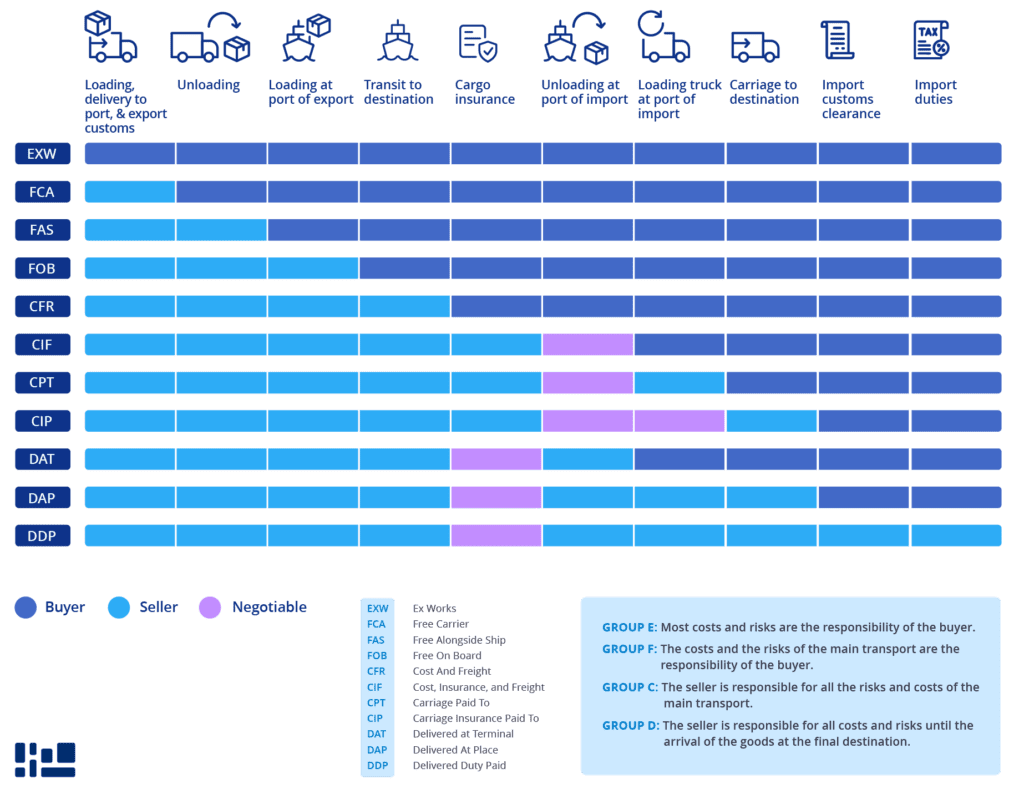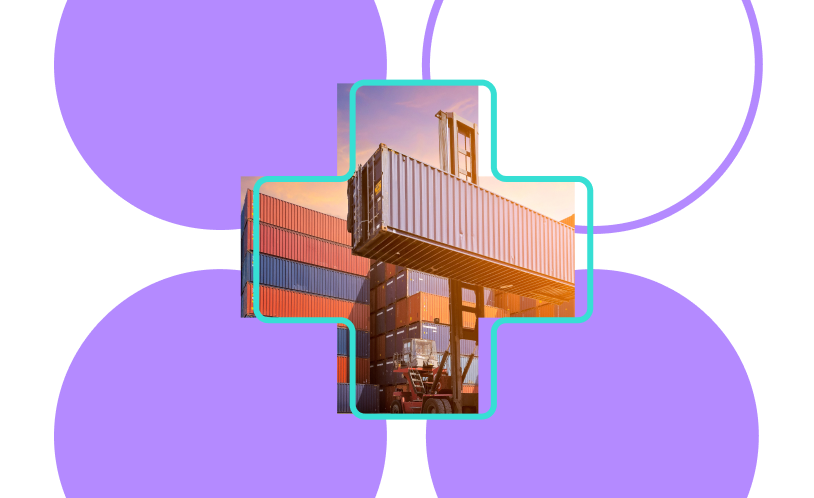Part of the Comprehensive Incoterms Guide
Prior to the release of the ICC Incoterms 2020 update, this incoterm was known as DAT. The substance of the incoterm has remained the same.
DPU In Plain English
For DPU (Delivered at Place Unloaded) shipping, the seller arranges all export country charges and international transit. The buyer arranges the rest.
Let’s break down DPU (Delivered at Place Unloaded) shipping in plain English. When opting for DPU, the responsibility dance is a two-player game. Picture this: the seller takes the lead in orchestrating the logistics ballet, managing export country charges, and steering the ship through the international transit waters. Now, here’s where the plot thickens—the buyer steps into the limelight but only for the grand finale. They’re tasked with organizing the remainder of the shipping journey.
Now, while this shipping Incoterm can be a star performer, it’s not without its plot twists. The crucial point of transition involves not one but two forwarders, adding a layer of complexity to the narrative. It’s like passing the baton in a relay race, and missteps in this handover can lead to logistical hiccups. So, as you navigate the intricate choreography of DPU shipping, keep a keen eye on the handovers, ensuring that each player in this international ballet is in perfect sync to deliver a seamless performance.
This incoterm can lead to problems as it involves two forwarders at a critical point.
Where Is The Named Place For Handing Over Responsibility From The Seller To The Buyer?
The seller continues responsibility and risk into the import country, up until the shipment is unloaded. This can occur at a number of locations, including the port, inland terminal, or forwarder’s warehouse.
What Does The ICC Say?
Recommended for containerized freight.

Is This A Good Choice?
This rule favors the seller where the seller is stronger, being liable and responsible for all tasks in the export country; and favors the buyer where the buyer is stronger, being liable and responsible for all tasks in the import country. The seller is also liable and responsible for the main freight. Also consider DAP with a terminal as the named place, where the buyer pays for unloading.
DPU Tips And Tricks
- The seller pays for unloading. The buyer is responsible for all charges after unloading, except (in theory) any charges caused by delay, including demurrage charges at the terminal, which is generally the seller’s responsibility.
- That exception can get contentious. The seller has good grounds to refuse to pay if the buyer held up import customs clearance. But, maybe that was because the seller submitted incorrectly in the first place. Maybe that was the Customs broker’s error. Consider ways to avoid this type of dispute when negotiating the contract, stage, e.g. the seller couriers some documents to the buyer before pickup; liability for demurrage and other costs takes into account the above scenario, all information on documents to be submitted to Customs must be double-checked. Basically, the buyer, seller, and carrier need to work closely. Or instead, consider CPT (delivery to buyer’s warehouse).
- Ensure that the seller can undertake all the necessary formalities in the buyer’s country, e.g. paying GST or VAT.
- Damages are more likely to occur between the buyer’s premises and the import country terminal than the final leg to the buyer’s warehouse. However, this can be difficult to prove. Consider DAP instead.
- If the named place is a clearance depot, or for more porous borders where Customs does pre-clearance at the border, the shipment may be delivered to the named place uncleared. That is, payment to Customs is still required.
How much does it cost to ship DPU?
You can use our freight rate calculator to help you decide how different incoterms will impact your freight cost. For example, when shipping EXW, you’ll be responsible for the added cost of getting your goods from your supplier to the seaport or airport. Simply choose container, box, or pallet shipping, enter your dimensions and weight, and you’ll get an instant estimate of freight shipping costs.



